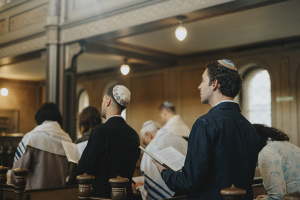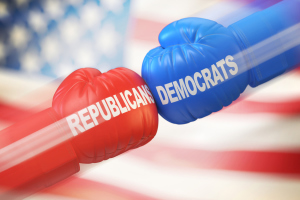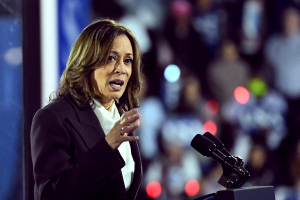Christian universities and homosexuality: What to do?

A major Evangelical college, Azusa Pacific University, recently experienced a series of institutional convulsions about one of the most controversial issues facing Christians today: homosexuality. As a case study, the events at APU illustrate just how complicated the topic is for Christianity in general and Christian universities in particular.
Let’s review. Before the fall 2018 semester, APU relaxed language in its school standard of conduct prohibiting romantic same-sex relationships. Soon afterward, however, the board of trustees announced that they had never approved the change. The school then reaffirmed its commitment to a traditional, “biblical and orthodox” understanding of marriage.
There was tremendous backlash from the student body. Senior Alexis Diaz, quoted in an article in the Huffpost, called the school’s management of the situation, “extremely unprofessional.” She also said, “If they didn’t approve it in the first place, where was the miscommunication in the middle? That’s really frustrating. You can’t say one thing and go back on your word. You lose the trust of students.” Diaz, who identifies as queer, felt like she’d been given a taste of freedom only to have it ripped away. Since the reversal, there have been numerous on-campus rallies and walk-outs to protest it.
On the other hand, another article in The Christian Post expressed undiluted support of the board’s decision. “The kind of conviction and clarity the Azusa Pacific board of trustees just showed will be a major qualification for Christian leadership in the years to come,” write John Stonestreet and G. Shane Morris, “Especially when the pressure comes not just from without, but from within.
Here we have, essentially, the two sides of the issue. Increasingly liberal student bodies are in favor of accepting their LGBTQ+ peers, seeing such acceptance as an expression of the gospel. However, a more conservative sector of the faith feels that the only way to be a Christian without compromise is to denounce homosexuality in all its forms.
In the meantime, the question remains: What should Christian universities do?
There are a few different ways for them to respond. Christian ethicist David Gushee, in his book Changing Our Minds, says that there are three options for Christian churches and institutions.
- Reaffirm their commitment to the traditional Biblical interpretation that heterosexuality is the only morally acceptable sexuality for a human to have.
- Keep their heads down, neither endorsing nor rejecting the LGBTQ+ community.
- Rethink their stance on Christian sexuality.
APU, clearly, went with option one. “God’s perfect will and design for humankind,” the board said, is “the biblical understanding of the marriage covenant as between one man and one woman. Outside of marriage, He calls His people to abstinence.”
Option one has some pros and cons. It placates APU’s donor base and conservative voices like commentator Rod Dreher, who initially claimed the university had “surrendered” its core conservative values.
However, option one also alienates students from administration, leaving students feeling unheard and devalued. The divide between many millennial and older Christians is clear here. A 2014 Pew Research Center survey found that 51 percent of Millennial Evangelical Protestants (those born between 1981-96) believe that homosexuality should be accepted. That number drops to one-third of evangelical Baby Boomers, and one-fifth of evangelicals ages 76 to 93.
As an added complication, there is also Title IX. Title IX of the Higher Education Amendments of 1972 prohibits discrimination, on the basis of sex, “under any education program or activity receiving Federal financial assistance.” This statement has been interpreted to extend to gender identity, which means that it’s possible that Christian colleges will lose federal funding in upcoming years if they maintain unequivocal condemnation of people on the LGBTQ+ spectrum. This is a serious concern, since most Christian colleges receive 40 to 60 percent of their budget from federal funding, according to the chief financial officer at Wheaton College.
As for the question, “What should Christian colleges do?” goes, clearly, there’s much to consider. The stakes are high since the spiritual and emotional wellbeing of students is at stake.
As a recent graduate of Azusa Pacific University, I’m especially invested in the question. It makes me think about compromise, conversation and what Christian values should be. I’m not an authority on the subject, and I don’t have an answer.
I just have a wish: that the rift created between administration and students by unequivocal policy decisions about homosexuality would be taken seriously, as seriously as the moral, financial and Biblical issues. I’ve personally witnessed students develop disdain for professors and university officials over the topic of homosexuality, and vice versa. There are wounds and biases that run deep. Since Christian education values spiritual as well as educational growth, conversation between students and faculty is crucial.
But the topic of homosexuality is a sensitive one, so conversation about it tends to get shut down or quickly become hostile. Whatever their other policies, I hope Christian universities also take significant steps to encourage dialogue and foster mutual understanding, since this is where the best learning occurs.
LightWorkers’ mission is to create engaging, uplifting and inspirational content that breaks through the clutter, building a community of sharing and igniting a movement in the real world that motivates people to celebrate and share the good all around them.




























